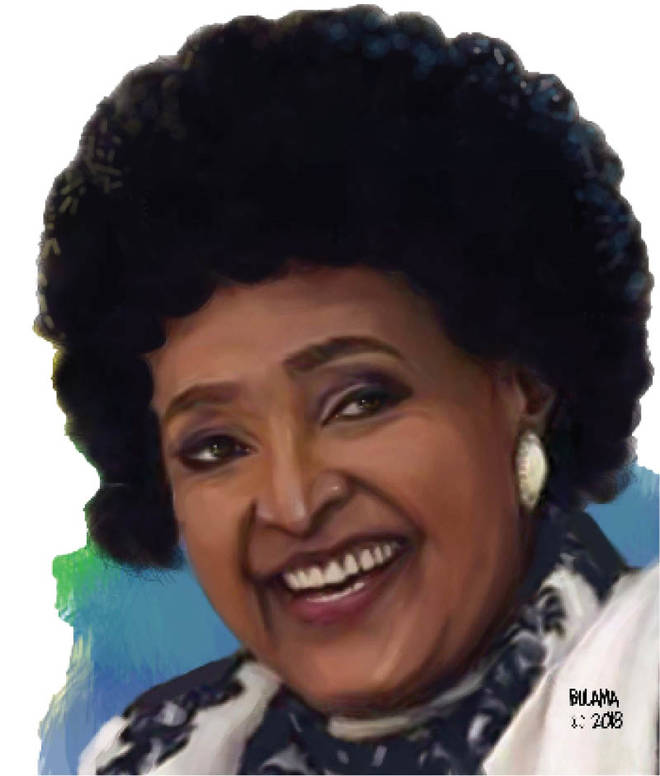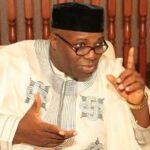
The Nelson Mandela and Nomzamo Winifred Madikizela story is an inspiring and courageous story of love and activism I love reading and studying due to my deep passion for anything related to the history of the South African Struggle.
Winnie’s name ‘Nomzamo’ in Xhosa means ‘one who strives or undergoes trials’, a name Nelson Mandela said was as prophetic as his own name, ‘Rolihlahla’, which means ‘pulling the branch of a tree’, in Xhosa.
The liberation movie ‘Sarafina!’ with Leleti Khumalo as the leading actor inspired and radicalized so many of us and we joined the bandwagon of Nelson Mandela’s sympathizers, and remained so. In fact, the movie exposed many young men and women to the plights of the African National Congress and the black populace they represented.
Mandela’s autobiography ‘Long Walk To Freedom’ and Winnie’s biography ‘Winnie Mandela: A Life’ by Anne Marie du Perez Bezdrob, and Heidi Holland’s ‘100 Years Of Struggle’ really gave one a different perspective on the South African struggle.
The death of Winnie indeed opened and also closed a chapter in South African history of anti-apartheid and struggle for humanity.
Winnie’s life was a life of conviction and courage, a life of devotion to her former husband and the struggle he believed in since the 1940s until he returned to his creator. She was an amazing beacon who stood tall for her name and children, until the news hit the world of their divorce as announced by Mandela at a press conference on 13th April 1992, after 38 years of marriage.
This is what Mandela said at the press conference:
“The relationship between myself and my wife, Comrade Nomzamo Winnie Mandela, has become the subject of much media speculation. I am issuing this statement to clarify the position and in the hope that it will bring an end to further conjecture. Comrade Nomzamo and myself contracted our marriage at a critical time in the struggle for liberation in our country. Owing to the pressures of our shared commitment to the ANC and the struggle to end apartheid, we were unable to enjoy a normal family life. Despite these pressures our love for each other and our devotion to our marriage grew and intensified. . .
“However, in view of the tensions that have arisen owing to differences between ourselves on a number of issues in recent months, we have mutually agreed that a separation would be best for each of us. My action was not prompted by the current allegations being made against her in the media. . . . Comrade Nomzamo has and can continue to rely on my unstinting support during these trying moments in her life. I shall personally never regret the life Comrade Nomzamo and I tried to share together. Circumstances beyond our control however dictated it should be otherwise. I part from my wife with no recriminations. I embrace her with all the love and affection I have nursed for her inside and outside prison from the moment I first met her. Ladies and gentlemen, I hope you will appreciate the pain I have gone through.”
On page 600 of his autobiography, Mandela went philosophical than being straight to the divorce issue, saying, “Perhaps I was blinded to certain things because of the pain I felt for not being able to fulfill my role as a husband to my wife and a father to my children. But just as I am convinced that my wife’s life while I was in prison was more difficult than mine, my own return was also more difficult for her than it was for me. She married a man who soon left her; that man became a myth; and then that myth returned home and proved to be just a man after all. As I later said at my daughter Zindzi’s wedding, it seems to be the destiny of freedom fighters to have unstable personal lives. When your life is the struggle, as mine was, there is little room left for family. That has always been my greatest regret, and the most painful aspect of the choice I made.
“We watched our children growing without our guidance,” I said at the wedding, “and when we did come out [of prison], my children said, ‘We thought we had a father and one day he’d come back. But to our dismay, our father came back and he left us alone because he has now become the father of the nation.’ To be the father of a nation is a great honor, but to be the father of a family is a greater joy. But it was a joy I had far too little of.”
Winnie was his shield in the struggle when he was imprisoned following the trial, she was detained several times and also banished and spent several months in solitary confinement as captured by historians of the Mandelas. All things considered Winnie deserves state burial in view of her sacrifice to modern South Africa.
The real issues surrounding their divorce were never made public, but whatever it is, the two had a blissful marital life and their lives shaped their struggles and they have all returned to their creator. Like I said in the beginning, what is fascinating and worthy to recall is how the two met and formed a union that birthed two adorable daughters, Zenani and Zindziwa.
At this point, I crave the indulgence of my readers to quote extensively from page 213 of Mandela’s autobiography, where he shared their inspiring story of love and destiny:
“One afternoon , during a recess in the preparatory examination, I drove a friend of mine from Orlando to the medical school at the University of the Witwatersrand and went past Baragwanath Hospital, the premier black hospital in Johannesburg. As I passed a nearby bus stop, I noticed out of the corner of my eye a lovely young woman waiting for the bus. I was struck by her beauty, and I turned my head to get a better look at her, but my car had gone by too fast. This woman’s face stayed with me – I even considered turning around to drive by her in the other direction – but I went on.Some weeks thereafter, a curious coincidence occurred. I was at the office, and when I popped in to see Oliver, there was this same young woman with her brother, sitting in front of Oliver’s desk. I was taken aback, and did my best not to show my surprise – or my delight – at this striking coincidence. Oliver introduced me to them and explained that they were visiting him on a legal matter.
“Her name was Nomzamo Winifred Madikizela, but she was known as Winnie. She had recently completed her studies at the Jan Hofmeyr School of Social Work in Johannesburg and was working as the first black female social worker at Baragwanath Hospital. At the time I paid little attention to her background or legal problem, for something in me was deeply stirred by her presence. I was thinking more of how I could ask her out than how our firm would handle her case. I cannot say for certain if there is such a thing as love at first sight, but I do know that the moment I first glimpsed Winnie Nomzamo, I knew that I wanted to have her as my wife. Winnie was the sixth of eleven children of C. K. Madikizela, a school principal turned businessman. Her given name was Nomzamo, which means one who strives or undergoes trials, a name as prophetic as my own. She came from Bizana in Pondoland, an area adjacent to the part of the Transkei where I grew up. She is from the Phondo clan of amaNgutyana, and her great-grandfather was Madikizela, a powerful chief from nineteenth-century Natal who settled in the Transkei at the time of the iMfecane.
“I telephoned Winnie the next day at the hospital and asked her for help in raising money for the Treason Trial Defense Fund from the Jan Hofmeyr School. It was merely a pretext to invite her to lunch, which I did. I picked her up where she was staying in town, and took her to an Indian restaurant near my office, one of the few places that served Africans and where I frequently ate. Winnie was dazzling, and even the fact that she had never before tasted curry and drank glass after glass of water to cool her palate only added to her charm.
“After lunch I took her for a drive to an area between Johannesburg and Evaton, an open veld just past Eldorado Park. We walked on the long grass, grass so similar to that of the Transkei where we both had been raised. I told her of my hopes and of the difficulties of the Treason Trial. I knew right there that I wanted to marry her – and I told her so. Her spirit, her passion, her youth, her courage, her willfulness – I felt all of these things the moment I first saw her.
“Over the next weeks and months we saw each other whenever we could. She visited me at the Drill Hall and at my office. She came to see me work out in the gym; she met Thembi, Makgatho, and Makaziwe. She came to meetings and political discussions; I was both courting her and politicizing her. As a student, Winnie had been attracted to the Non-European Unity Movement, for she had a brother who was involved with that party. In later years, I would tease her about this early allegiance, telling her that had she not met me, she would have married a leader of the NEUM.
May God grant Comrade Nomzamo’s soul eternal rest and may we that remain on this temporary world have a better end.
Samuel Aruwan writes from Kaduna




